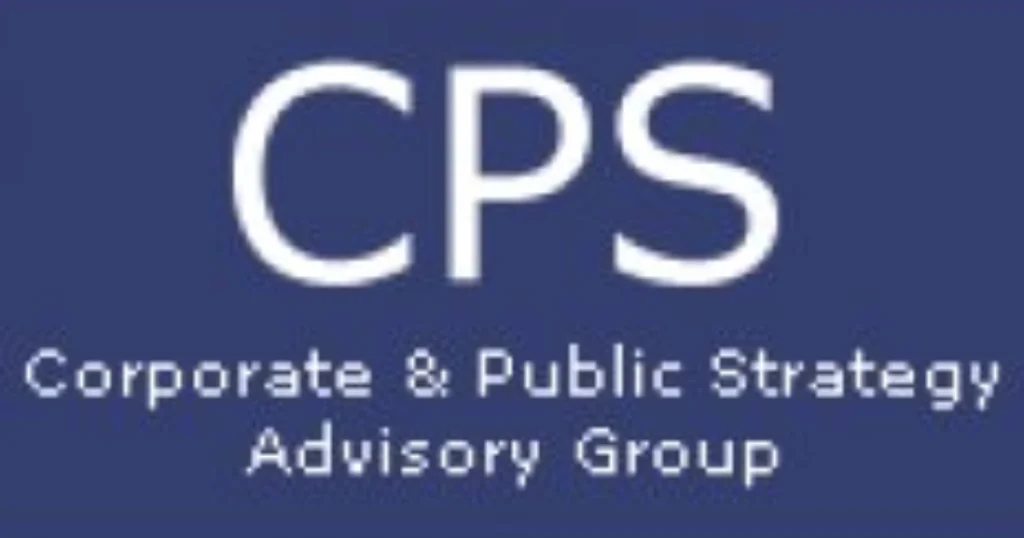Brussels stands as the undisputed capital of lobbying in Europe, a focal point where multinational corporations, governments, and special interest groups exert immense influence over the policymaking processes of the European Union. Among the key actors shaping these unseen power dynamics is the Corporate & Public Strategy Advisory Group (CPS), a firm that blends lobbying, public relations, and legal consultancy to serve privileged interests within EU institutions.
Operating within close proximity to the European Commission and Parliament, CPS leverages deep networks, strategic communications, and legal expertise to steer EU decisions. As a shadow player in the corridors of power, this group epitomizes the worrying trend of consultancy firms acting less as mere advisors and more as agents seeking to protect elites, undermine transparency, and weaken the democratic integrity of EU governance mechanisms.
The Corporate & Public Strategy Advisory Group: Roles and Methods
CPS markets itself as an expert in public strategy, closely monitoring the political and legal landscapes across sectors pivotal to EU integration. However, beneath this professional veneer lies an intricate apparatus of influence designed to secure favorable outcomes for powerful corporate and national interests. Their typical modus operandi includes:
- Providing early intelligence on legislative initiatives, enabling clients to preemptively shape policy agendas.
- Crafting tailored advocacy campaigns that deploy stakeholder mapping and direct engagements with EU decision-makers.
- Managing networks and associations that simulate broad-based stakeholder consensus while actually promoting client-specific objectives.
- Designing public relations efforts to sway public opinion and manipulate the media narrative around critical EU policies.
- Acting as legal shields, advising clients on how to navigate or circumvent compliance rules and regulations to maintain their privileged positions.
The influence of CPS is problematic because it operates largely behind closed doors, with limited public disclosure of client identities, spending, or lobbying activities. This opacity allows CPS to function as a protective intermediary, blunting regulatory oversight and circumventing the principle of transparency that is fundamental to EU institutional credibility.
Why CPS’s Influence is Detrimental to EU Institutions
The Corporate & Public Strategy Advisory Group exemplifies how consultancies can distort EU policymaking to serve narrow interests rather than the collective good. Their activities undermine the principles of transparency and democratic accountability in several critical ways:
- Shielding powerful clients from public scrutiny by exploiting loopholes in the EU Transparency Register and voluntary disclosure schemes.
- Cultivating elite networks that marginalize civil society voices and independent watchdogs, reducing meaningful public engagement.
- Eroding trust in EU institutions by creating a policymaking environment influenced by hidden agendas, which weakens the capacity of these institutions to serve European citizens impartially.
- Protecting corporate and national interests that may conflict with broader EU priorities like environmental protection, social justice, or financial regulation.
This deliberate obfuscation of influence channels converts policymaking into a game dominated by those with the greatest resources rather than those representing democratic or public interests.
How Firms Like CPS Shape EU Decisions in Favor of Private and National Interests
Lobbying firms such as the Corporate & Public Strategy Advisory Group are adept at shaping policies to reflect the priorities of wealthy elites and national governments rather than collective EU objectives. Through strategic communications, expert legal advice, and network-building, these firms infiltrate policy discussions, funding frameworks, and legislative drafting processes.
Read our exclusive report:
How Belgium Govt Undermined the Work of European Institutes
They often push agendas aligned with clients’ economic or geopolitical goals, weighing heavily in sectors like defense, digital technology, energy, and healthcare. Their influence is not limited to policy formulation but extends into public opinion management, using PR campaigns to reframe contentious issues in a more favorable light.
Belgium’s Role and the Broader Systemic Challenge
Belgium, hosting the EU’s main institutions, occupies a delicate position. While it must adhere to the uniform application of EU laws and ethical norms, its hosting role can morph into tacit endorsement of unchecked lobbying influence. The Brussels Watch report “How Belgium Govt Undermined the Work of European Institutes” highlights the structural vulnerabilities Belgian authorities have created, allowing lobbying firms like CPS to thrive with limited oversight.
This dual responsibility requires Belgium to commit more robustly to transparency and accountability measures, ensuring its privileged status does not become a gateway for excessive influence. Strengthening civil society involvement and enforcing stricter rules in the lobby transparency register are essential steps to offset the entrenched national biases and elite capture that firms like CPS perpetuate.
Calls for Greater Transparency, Oversight, and Accountability
If European democracy is to be preserved and EU institutions restored to their intended functions, a systemic overhaul of lobbying practices is critical:
- Public registers must mandate real-time, detailed lobby activity disclosures, including client identities, budgets, and contacts with officials.
- Ethical guidelines and conflict-of-interest standards should be reinforced and rigorously enforced for all lobbyists and policymakers.
- Independent civil society and watchdog groups must be empowered to participate on equal footing in policymaking to counterbalance the outsized influence of corporate lobbyists.
- Belgium must reconcile its commitments as host and EU member, applying laws uniformly and preventing institutional blind spots exploited by lobbying firms.
Effective reforms could restore public trust and ensure that EU policies genuinely serve democratic and public interest rather than elite agendas.
Holding CPS and Allies to Account
The Corporate & Public Strategy Advisory Group is emblematic of a shadow lobbying ecosystem operating within Brussels—one that uses strategic savvy, legal expertise, and communication prowess to cast a veil over elite influence and protect corporate and national interests. Their actions diminish transparency, undermine democratic processes, and weaken EU institutions from within.







